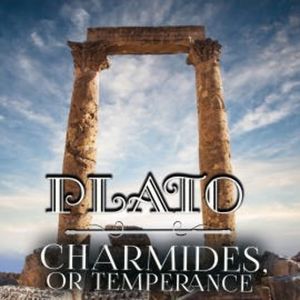The Charmides is a dialogue of Plato, in which Socrates engages a handsome and popular boy named Charmides in a conversation about the meaning of sophrosyne, a Greek word usually translated into English as "temperance," "self-control," or "restraint." When the boy is unable to satisfy him with an answer, he next turns to the boy's mentor Critias. In the dialogue, Charmides and then later Critias champion that Temperance is "doing one's own work" but Socrates derides this as vague. The definition given next of "knowing oneself" seems promising but the question is then raised if something can even have the knowledge of itself as a base. As is typical with Platonic early dialogues, the two never arrive at a completely satisfactory definition, but the discussion nevertheless raises many important points.
Charmides, or Temperance
- Sprecher
- Dauer
- 1 Stunden 1 Minuten
- Verlag
- Typ
- Ungekürzt
- Format
- Hörbuch Download
- ISBN
- 4099995467017
- Sprache
- Englisch
- Kategorie
Vollversion anhören
Inbegriffen in der Streaming Flatrate
Enthalten im Audioteka Club Abo
- Dieser und weitere 75.000 Titel enthalten in der Streaming Flatrate
- Exklusiver Abonnent*innen Preis für Titel, die nicht im Streaming verfügbar sind
- Keine Stundenlimits innerhalb der Flatrate
- Deutsche und internationale Bestseller gelesen von den besten deutschen Stimmen
1,99 €
Preis außerhalb des Clubs
Beschreibung
Bewertungen und Rezensionen
Nur angemeldete Nutzer können Bewertungen abgeben. Jetzt anmelden
Die Meinungen stammen von angemeldeten Kunden, die unser Produkt oder unsere Dienstleistung gekauft haben. Die Meinungen werden in Übereinstimmung mit den Bewertungsrichtlinien gesammelt, überprüft und veröffentlicht.
Vollversion anhören
Inbegriffen in der Streaming Flatrate
Enthalten im Audioteka Club Abo
- Dieser und weitere 75.000 Titel enthalten in der Streaming Flatrate
- Exklusiver Abonnent*innen Preis für Titel, die nicht im Streaming verfügbar sind
- Keine Stundenlimits innerhalb der Flatrate
- Deutsche und internationale Bestseller gelesen von den besten deutschen Stimmen
1,99 €
Preis außerhalb des Clubs
